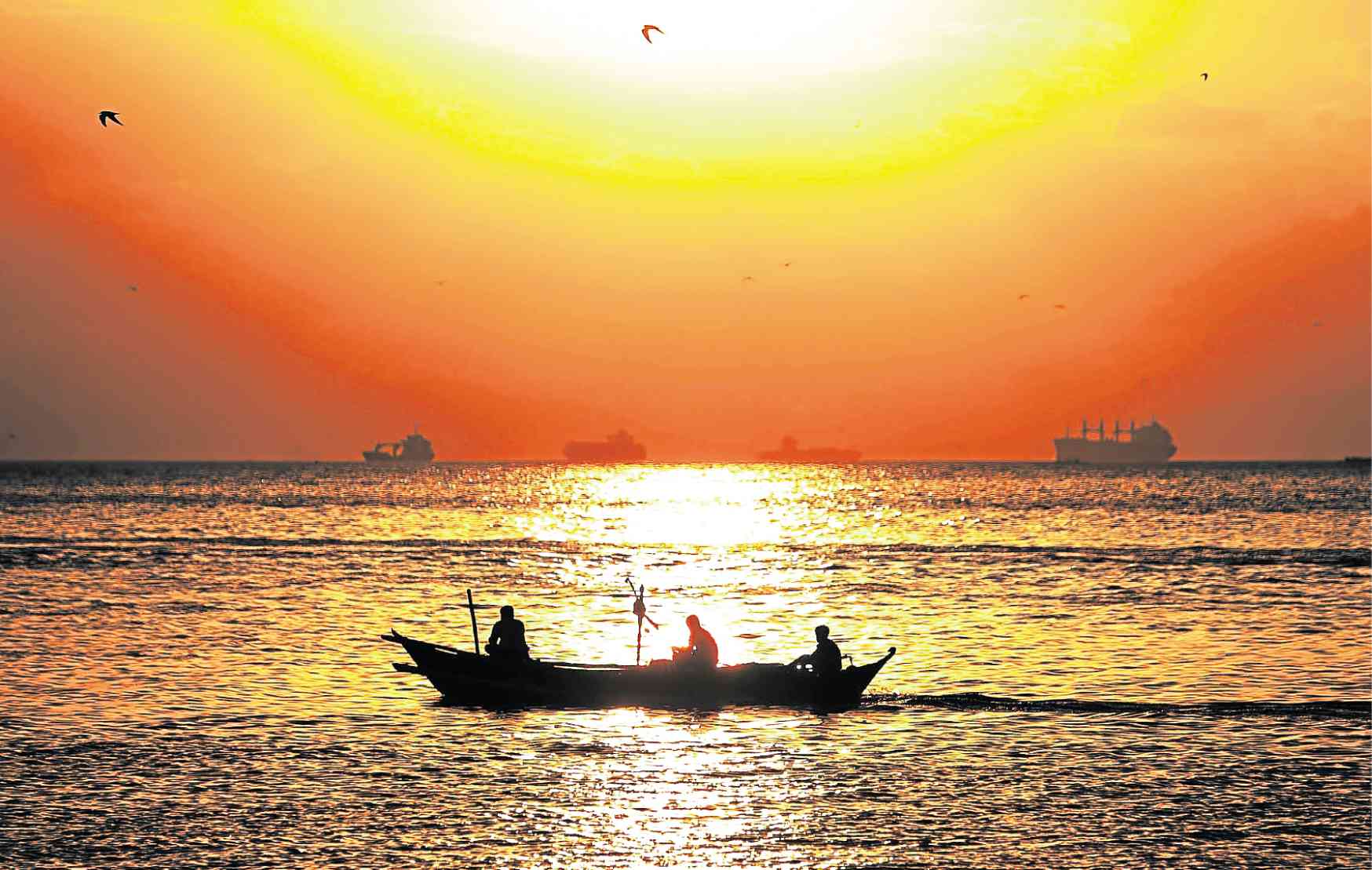
CONSTANT VIEW The Manila Bay sunset, according to a UP professor, has not changed in decades but the same cannot be said of the bay’s environmental quality. —Edwin Bacasmas
Manila Bay’s picture-perfect sunset cannot hide its environmental problems, according to a science expert.
University of the Philippines professor Benjamin Vallejo Jr., who spoke at a recent forum on saving the bay, said that reclamation projects were the “No. 1 environmental issue” of the historic body of water.
Scientists, environmental advocates and an urban planner attended the forum held earlier this week at the Manila Yacht Club.
“Manila Bay is not dead. There are plenty of fish caught in Bataan [province]. If the reclamation projects push through, what about the fishermen who depend on the sea?” said Vallejo, who has been studying the Manila harbor bay region for over a decade.
Showing images of the bay sunset from 1910 to 2019, Vallejo said the view has so far been consistent, but the body of water’s environmental quality has changed since then.
Disappearing nurseries
One of the changes is the disappearance of mud flats—land near a body of water that, according to Vallejo, serves as a “nursery for marine species [and] reduces wave damage to the shoreline.”
According to him, major habitats, sea grass, mangroves and mud flats will suffer from reclamation projects.
Mike Lu, president of the Wild Bird Club, agreed, saying: “By reclamation, we are obliterating everything, not just the wildlife. When we reclaim, we destroy two places,”
He said that fowls were “environment indicators.” The Philippine duck, an endemic species, is found only in the cities of Las Piñas and Parañaque. Balanga City in Bataan province, meanwhile, has the highest concentration of migratory birds.
In implementing a drastic project such as reclamation, Vallejo said that residents and elected officials should weigh the pros and cons. “They should also ask themselves: ‘What is the outcome we want to see?’”
House deputy speaker Rosemarie Arenas, on the other hand, cited a study by geologist Kelvin Rodolfo that reclamation would cause land subsidence, storm surges and storm waves brought by typhoons, and seismically-induced liquefaction.
“Reclaimed land is susceptible to liquefaction so structures built on top of liquefied land are likely to collapse,” she said.
Arenas urged fellow legislators to pass a law that would ban and criminalize further reclamation on Manila Bay.